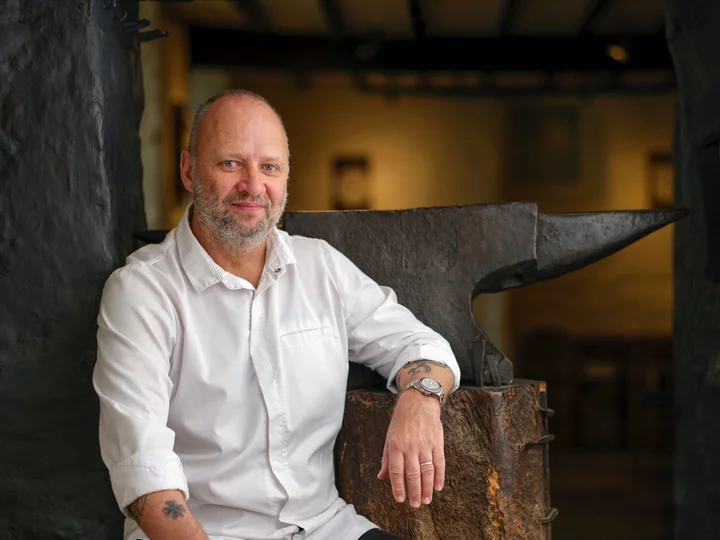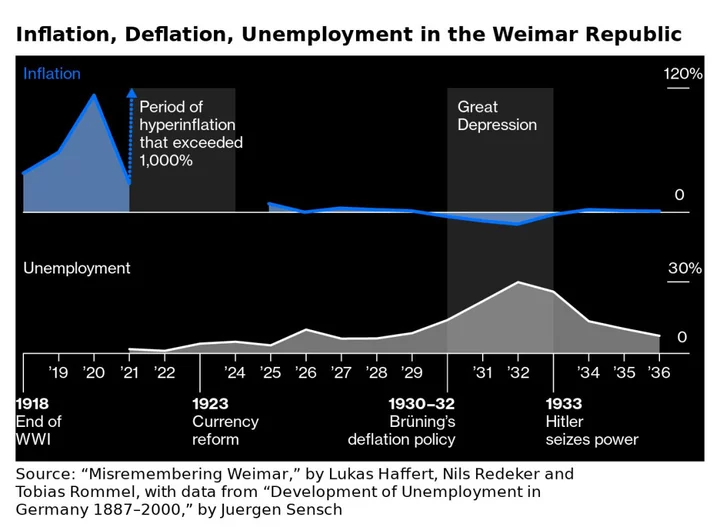
Ultra-processed food may cause ‘tidal wave of harm’ including stroke and heart attack risk
Two new studies have found conclusive links between the consumption of ultra-processed foods (UPF) with increased cardiac disease risk, including heart attacks and strokes. The research, presented at the annual meeting of the European Society of Cardiology in Amsterdam, found highly processed food sold in stores across the world, such as fizzy drinks, cereals and ready-to-eat meals, may lead to an increased risk of cardiovascular diseases and hypertension. Henry Dimbleby, the UK government’s former food tsar, said the findings should be a “wake-up call” for the country. “Britain is particularly bad for ultra-processed food. It is storing up problems for the future,” he told The Guardian. “If we do nothing, a tidal wave of harm is going to hit the NHS.” One of the studies, conducted by scientists from the Fourth Military Medical University in China, conducted a review of 10 studies that included 325,403 participants and 38,720 cases of cardiovascular disease (CVD) events, including heart attack and stroke. It found a conclusive association between UPF and heart disease risk. Scientists found that a 10 per cent increase in UPF consumption in daily calorie intake is linked to a 6 per cent rise in heart disease risk. Researchers also observed that the lowest risk was at a less than 15 per cent per day of UPF consumption out of total calorie intake. However, heavy UPF consumption “was significantly and positively associated with increased risk of cardiovascular events,” scientists noted. The other research, also presented at the world’s largest heart health conference, assessed the link between UPF intake with CVD and hypertension in a population of middle-aged women in Australia. Scientists, including those from the University of Sydney, assessed health data of about 10,000 women aged 46-55 years who were recruited into the Australian Longitudinal Study on Women’s Health and followed for 15 years. They assessed the contribution of UPF in the daily dietary intake of these women as well as their self-reported heart disease and stroke, and/or hypertension incidences. The women included in the study had an average UPF intake of 26.6 per cent of total food dietary intake. Over their 15 years of follow-up, scientists found 1,038 incident CVD and 4,204 hypertension cases. Among the middle-aged women, scientists observed that a higher UPF intake was associated with higher risk of CVD and hypertension. “These findings lend support to minimising UPF intake as a component of a heart-healthy diet,” scientists wrote in the study. Taken together, the findings hinted that the harm caused by UPF may be more than just due to their high salt and fat content. “If there is something inherent in the processing of foods that is harmful, then that is a disaster,” said Mr Dimbleby. Read More First-of-its-kind study finds laughter is indeed good medicine, especially for the heart How many steps a day can cut risk of early death (and it’s not 10,000) Weight loss jabs improve heart failure symptoms in obese patients – study First-of-its-kind study finds laughter is indeed good medicine How many steps a day can cut risk of early death (and it’s not 10,000) ‘Boy moms’ called out for dubious logic behind teaching their sons to cook
1970-01-01 08:00

First-of-its-kind study finds laughter is indeed good medicine, especially for the heart
A new, first-of-its kind study has demonstrated that laughter can indeed be good medicine – especially for those with heart disease. Laughter therapy can increase the functional capacity of the cardiovascular system that includes the heart, lungs, arteries and veins, found the yet-to-be peer-reviewed research presented at the annual meeting of the European Society of Cardiology in Amsterdam. Researchers, including Marco Saffi from the Hospital de Clínicas de Porto Alegre in Brazil, found reduced inflammation and better signs of health among coronary artery disease patients who engaged in a course of laughter therapy. They found laughter therapy sessions could cause the tissue inside a patient’s heart to expand, potentially leading to increased oxygen flow through the body. Until now, different treatments without the use of drugs have been studied in coronary artery disease patients, but the benefits of rehabilitation using laughter therapy was not fully assessed, scientists said. In the new study, the impact of laughter therapy on the functional capacity, tissue function as well as markers of inflammation in the bodies of patients with coronary artery disease was evaluated. The condition, which is one of the most common diseases in the world, arises when the heart’s coronary arteries struggle to supply the organ with enough blood, oxygen and nutrients. Scientists conducted a clinical trial involving 26 adults with an average age of 64 from August 2016 to December 2020, measuring each of their oxygen uptake and the widening of their main artery when blood flow increases. Researchers also measured levels of molecules in the patients’ bodies, indicative of inflammation such as interleukin (IL)-6, IL-10, tumour necrosis factor (TNF)-alpha, vascular cell adhesion molecule (VCAM) and intercellular adhesion molecule (ICAM). Thirteen of the patients were assigned to the group that underwent laughter therapy by watching two self-selected TV comedy shows per week. The other 13 served as the control group and watched “neutral documentaries”, scientists noted. They said the study is the first controlled clinical trial to evaluate the impact of rehabilitation using laughter therapy on patients with coronary artery disease. It revealed an increase in the body’s peak oxygen uptake and improvements in tissue function as well as the body’s markers of inflammation. The new findings are in line with previous research that suggested having a good laughter session makes the body release endorphins, which are hormones that reduce stress and inflammation and help the heart and blood vessels relax. Based on the new results, presented at the world’s largest heart conference, scientists say laughter therapy may constitute an “effective form of cardiac rehabilitation in this patient population”. Read More How many steps a day can cut risk of early death (and it’s not 10,000) A broad genetic test saved one newborn's life. Research suggests it could help millions of others Snoring before age 50 is a health ‘red flag’, experts suggest How many steps a day can cut risk of early death (and it’s not 10,000) Experts warn that snoring before you turn 50 is a health ‘red flag’ ‘Boy moms’ called out for dubious logic behind teaching their sons to cook
1970-01-01 08:00

The Ukraine war, propaganda-style, is coming to Russian movie screens. Will people watch?
The Russian authorities have announced an endeavor to boost production of movies glorifying Moscow’s actions in Ukraine this year
1970-01-01 08:00

What to stream this week: Indiana Jones, 'One Piece,' 'The Menu' and tunes from NCT and Icona Pop
This week’s new entertainment releases include an album from the 20-member K-pop super group NCT, ”Indiana Jones and the Dial of Destiny” swings into streaming
1970-01-01 08:00

11 Facts About the Salem Witch Trials
The 1692 Salem witch trials caused so much turmoil that the Massachusetts town is still synonymous with them.
1970-01-01 08:00

Airline loses passenger's dog at world's busiest airport
Delta staff lost a passenger's dog at Atlanta Airport. Paula Rodriguez's dog, Maia, escaped its cage as Delta staff were transferring her to her flight at Atlanta's Hartsfield-Jackson airport, the busiest in the world.
1970-01-01 08:00

Pizza, cake and meringue martinis: When did cinema food get so silly?
As I sit in the dark of Screen 2 at Oxford’s Curzon cinema, a woman a few seats away from me does something I’ve not seen before: she orders pizza. Specifically, she orders £64.85 worth of pizzas and chips for her and her family. A few minutes later – after the film has started, in fact – the food is brought to her, as though she was sitting in any regular restaurant and not in a cinema. Eating at the pictures is becoming ever more sophisticated, with ushers bringing you food as fancy as sushi without you having to move a muscle. Is it getting a bit silly? It’s no secret that cinemas have endured a range of crises over the past few years, partly thanks to the rise of streaming and then the pandemic and even more streaming. Cinemas across the country have shut down and forecasters predict that screens won’t be as full as they were pre-Covid until 2025. Some of the cinemas that survived, like AMC, are saddled with billions of pounds worth of debt. Just showing people films may not cut it in this difficult new era. As they fight to survive, cinemas are having to up their game. They have to offer “experiences”. Christina Flourentzou, operations manager at Curzon, says they learned that customers wanted more food and drink with their film thanks to their feedback service, Feed It Back. This happened before Covid struck, she points out, but post-pandemic the company rolled their restaurants out on a bigger scale. “What we’re trying to do is elevate the guest experience,” she says. “For us it’s about giving the guest the best possible experience; so anything that they want, we can give them, essentially.” At my local Curzon this includes padron peppers, mushroom and truffle croquettes, and vegan hot dogs. What Curzon has discovered, according to Flourentzou, is that when at-seat food and drink service is offered, the spend per customer goes up – often by as much as £2 per person. There is a different mindset when ordering at your seat compared with ordering at the till: “You take your coat off, your hands are free, you look at a menu, suddenly someone comes to you and says, ‘What would you like?’ Your mentality changes.” On any new site Curzon will now endeavour to install tables at seats, in order to allow for this in-screen service. Eating entire meals in your cinema seat is becoming more and more popular but it isn’t a brand-new phenomenon. Studio Movie Grill, born in Texas but with sites in states including California, Florida and Georgia, has been offering at-seat food and drink since 2000. Tearlach Hutcheson, the company’s vice president for film, calls this kind of operation a “cinema eatery”. He agrees that it isn’t just the pandemic that has caused a shift in customer priorities; it’s been happening over the past 20 years as home entertainment systems have become increasingly more sophisticated and cinemas have had to compete. “I think that people are looking for a different experience when they go to the theatres,” he says. “We have to provide a more luxurious catering experience to the guest.” I think the immersion is only going to get more and more. I think that everyone is going to adapt because this is what people want. I don’t think the cinema is enough now ... I don’t think it’s ever going to go back to popcorn and drinks Amy Fernando, creator of Taste Film At Studio Movie Grill, food revenue is more than twice that of ticket sales, and its CEO says that business is better for the company than before the pandemic. In cinemas, profit margins have always been higher on food than on tickets – though these margins are far smaller for cooked food than for popcorn and Coke. The kitchen staff at Studio Movie Grill are often dishing out six meals per minute. A recent innovation was a kitchen printer that printed orders faster than ever before. Servers are allowed to bring food and drink to guests at any point (unlike Curzon, where, Flourentzou says, it should strictly happen during the adverts and trailers) but the bulk of orders are placed within the first 30 minutes of arrival. Studio Movie Grill could represent the future of the cinema-going experience: it might soon be completely normal to bundle the film-and-a-meal experience into one. What Hutcheson is confident about is that cinemas will become more of a “destination spot” in order to entice people to leave the comfort of their homes. Flourentzou doesn’t think I’m right to call it “panic” but it does seem like cinemas are urgently fighting to stay alive. One person who knows all about using food and cinema to create an experience is Amy Fernando, creator of Taste Film, an enterprise that shows films to customers while serving them food featured in those films. Watching Goodfellas in 2016, Fernando was inspired by the infamous shaving garlic scene to marry the two things she cared most about. Seven years later, she has swapped teaching for running the business full-time. “I think the beauty of coming to the cinema, or doing an experience like this, is sharing it with like-minded people,” she says. “Post-Covid there is something special in getting dressed up, going out, and sharing the experience with other people.” When I go to watch Taste Film’s version of Mrs Doubtfire, I agree. I didn’t think of the film as one featuring all that much food but at appropriate moments we are served a savoury birthday muffin; chilli salt and pepper chicken wings; a meringue martini; tiger prawn skewers with chips and salad; a pina colada; and a chilli and chocolate mousse. As Fernando says, the frisson of fun is largely to do with two communal experiences: everyone not just watching the film at the same time but eating the same food at the same time. This won’t be replicable in regular cinemas (a Taste Film ticket is £75, for example) but the company is going from strength to strength, partnering with the big streamers, and its growth is indicative of people’s updated expectations around film. “Guests want more,” says Fernando, “and younger people want more.” Ultimately, of course, it will be the quality of films that govern whether or not cinemas stay afloat. This summer has seen an unusual boom in quality and business, with Barbie and Oppenheimer proving critical darlings as well as excellent earners. But where the cinemas can’t control how good the films are, they can control the various offerings they provide around them. “I think the immersion is only going to get more and more,” says Fernando. “I think that everyone is going to adapt because this is what people want. I don’t think the cinema is enough now.” Hutcheson and Flourentzou agree. Hand in hand with this development, Hutcheson says, will be a resurgence in “purer cinematic experiences” – people wanting to experience cinema with as sophisticated a picture and sound experience as possible. He believes that it won’t be long before cinema eateries – at the moment confined to more modest theatres – will also enter the IMAX space. Look at the signs and it certainly seems as though it will be difficult to put the genie back in the bottle – which means cinemagoers may need to brace themselves for an exciting new range of smells. Fernando is probably right when she says: “I don’t think it’s ever going to go back to popcorn and drinks.” Read More Too gay, too weird, too pregnant: The most controversial Barbie dolls in history Doing things alone isn’t ‘self-love’ – we don’t need to make everything empowering Sizzling kitchen drama The Bear is spicing up the dating game for chefs ‘It started with a radish’: Chef Simon Rogan reflects on restaurant L’Enclume at 20 The true story – and murky history – of Portuguese piri piri oil 30-minute summer recipes for all the family to enjoy
1970-01-01 08:00

I stayed at the home of Venice Film Festival – and it was quite something
As summer draws to a close, Venice prepares to open the doors to its prestigious film festival welcoming a host of a-listers, designers, a diverse catalogue of new releases and film critics to the red carpet. Each year, the Venice Lido – a short 15-minute boat ride from the famed St Mark's Square – plays host to the Venice Film Festival. While 2023's event may experience some subtle changes due to the ongoing SAG-AFTRA strike, the show seemingly must go on from 30 August to 9 September. The festival's artistic director Alberto Barbera previously described the strike's impact as "modest," with the planned lineup – including Bradley Cooper's Maestro and Sofia Coppola's Priscilla – still in competition for the Golden Lion prize. Meanwhile, the original opener, Luca Guadagnino’s Challengers featuring Zendaya, has been pushed back to an unconfirmed premiere date next year. A-listers at the 2023 Venice Film Festival have remained tight-lipped about their attendance or absence after Barbera stated "a few stars will not be with us." However, some are still expected to attend the hotly anticipated event of the year. I managed to sneak a peek at the majestic palace-style hotel where celebrities lay their heads during the decadent affair – and it certainly was something. Nestled on the Lido resides the opulent Hotel Excelsior, which has been the protagonist and host of the festival since 1932. Excelsior has welcomed the likes of Elizabeth Taylor, the Duke and Duchess of Windsor, George Clooney and Sandra Bullock to name a few. One of the rooms, renowned as the Stucchi room, even had its own starring role in Robert De Niro's Once Upon A Time In America. Excelsior epitomises the golden age of film, with its alluring cocktail of history, culture, laidback glamour and charm. The moment I stepped foot into the hotel lobby and strolled through the halls adorned with candid shots of classic Hollywood stars and complete with designer boutiques, I was transcended into a world of luxury beyond measure. A far cry from the dismal UK summer. Excelsior owes its success to entrepreneur Nicolò Spada, who commissioned the famed Venetian architect Giovanni Sardi to make the dream "only on paper" come to fruition. They have since welcomed over 110 years' worth of guests, with 30,000 Venetians and over 3,000 guests flocking to the grand opening for a single evening in July 1908. The unmatched hospitality and Venetian charm continue to this day, with depths of space, pools, a fitness studio and the only resort with its very own private beach complete with cabanas that provide a peaceful paradise for guests. A live piano performance of Audrey Hepburn's 'Moon River', hand-in-hand with an idyllic backdrop of the skyline, certainly set the tone for dinner at the Adriatico Terrace, where I was served a heavenly three-course meal. This included what can possibly only be described as the most exquisite dessert I've ever encountered. Interestingly, the terrace is where the official 1932 Venice Film Festival launch took place with a view of films that are considered classics to this day. These include Frank Capra's Forbidden, Grand Hotel by Edmund Goulding and the original Frankenstein by James Whale. Now, with a hotel so grand and weather we Brits have been deprived of all summer, it was rather tempting to stay on the grounds and do absolutely nothing but be a voyeur to how the other half live. As dreamy as that sounds, the push of encouragement came from a complimentary boat taxi service that runs throughout the day between Venice and Lido. A short 15 minutes across the water, I became a full-fledged tourist with gelato and a gondola ride rounded off with a Bellini at the famous Harry's Bar, the birthplace of the iconic cocktail renowned across the world. When the day was done, I headed back to my newfound comforts back at Excelsior. After 48 hours of experiencing unmatched laidback luxury, I (reluctantly) headed back to a rainy UK. As for whether I'd recommend Excelsior? Absolutely. Even if it's to stop by on your Venice travels to try out the evening menu, open to non-guests with prior booking. For more information on stays and events at Hotel Excelsior, click here. Sign up for our free Indy100 weekly newsletter Have your say in our news democracy. Click the upvote icon at the top of the page to help raise this article through the indy100 rankings.
1970-01-01 08:00

Michelin-starred chef Simon Rogan on 20 years of L’Enclume: ‘It all started with a radish’
In Cartmel, a picture-postcard Cumbrian village on the cusp of the Lake District, chefs in their whites are scurrying across the cobbled streets like an army of well-dressed worker ants. Some are heaving wheelbarrows stacked with mounds of freshly picked vegetables, still earthy from the farm; others are dashing from one building to another, precariously balancing enormous stacks of clean pans. They all have one thing in common: they work for Simon Rogan. If they’re the workers, he’s the queen. This well-rehearsed choreography is a typical sight every morning in Cartmel, where the Michelin-starred chef – one of only eight to own a three-starred restaurant in the UK – set up shop 20 years ago. After a decade of working at various levels in restaurants around the country (including a placement under Marco Pierre White and two years at the three-star Lucas Carton in Paris), Rogan was keen to open his own restaurant. Priced out of Hampshire and Sussex, he looked further afield and found a rundown 800-year-old former smithy in Cartmel available to rent. “I didn’t come here for anything as glamorous as the area or the scenery or the people,” he tells me, having just taken me on a tour of said area to meet said people. “It was just for this building. I was desperate for my own restaurant. I felt like I had never really achieved the things that I’d wanted to working for other people. I wanted to make my own mistakes and be in control of our own destiny. I know it sounds cheesy, but it’s true.” He made an offer on his way back from his first visit to the area, and L’Enclume was born. “Once you realise where you are, you think: s***, this is beautiful,” he adds, laughing. Over the next two decades, the ambitious chef transformed the Cumbrian village into a culinary destination unlike anywhere else in the UK. It’s now home to not only L’Enclume – awarded the environmental green star in 2021 and the coveted third star in last year’s Michelin Guide – but also the one-starred neighbourhood eatery Rogan & Co, and Aulis, L’Enclume’s six-seater chef’s table behind the main restaurant. He also put his name to Henrock, a more informal and relaxed offering just a half hour’s drive away at Linthwaite House, overlooking Lake Windermere. The engine behind this mini empire, and the reason I’m here, is Our Farm, a 12-acre plot in Cartmel that supplies the majority of the restaurants’ ingredients. A sustainable, closed-loop growing operation had always been “at the back of his mind”, Rogan says. He was inspired by his father, a fruit and vegetable salesman who would bring home a box of the day’s best produce, teaching him the importance of using every part of the ingredient. When they arrived in Cartmel to get started, though, “the standard of produce”, Rogan says “was absolutely rubbish. The reason we got into farming was my frustration at the ability to buy a perfect radish, which is the easiest thing in the world to grow.” They rented a small plot close to the restaurant, and filled in the gaps with local suppliers. But, back in 2002, it was too expensive to buy organic. “Things were triple the price they are now,” Rogan tells me, taking a sip of his beetroot juice at the Aulis counter. “So we bought little bits and pieces here and there alongside the normal suppliers. Then we had the opportunity to take over the farm. That’s when we thought: ‘Right, let’s start growing radishes.’” What started as a little garden has become something bigger than he could ever have anticipated. A restaurant growing its own produce is not a groundbreaking concept, but a kitchen garden this is not. You won’t find pristine beds and trimmed rose bushes and arty ornaments. But you will find a patchwork of muddy fields growing hardy vegetables, the topsoil painstakingly “fluffed” by hand; a regiment of polytunnels housing the more finicky plants, delicate micro herbs and other culinary experiments (I try something that tastes like pickled onion Monster Munch); and enormous hand-rotated compost bins that process all the food waste from the restaurants into mulch for the farm. All this is surrounded by hedgerows that have been carefully curated to attract birds and other wildlife to act as natural pesticides. None of this would be possible without head farmer John Rowland. Regenerative agriculture might be his trade, but birds are his true passion. During a tour of the farm, he lists off the species he’s seen circling overhead, drawn by the blackthorn, hawthorn, rowan and birch trees he’s been planting on the borders. “We cater for the birds more than the people,” he tells me, in a Welsh accent so bucolic I wonder whether he’s been shipped in specifically for the tour. “Everything on the farm has a use, and not only in a culinary way. The seeds and the berries attract the birds onto the farm. The birds are my pest control, so the more I can attract to the farm, the more pest control I have, and that is fantastic for birdlife. In Britain, we’ve lost 84 per cent of our bird species, but this area is really rich because of these techniques.” While he might prefer looking upwards, it’s what’s beneath our feet that Rowland is really focused on. “The life is in the soil,” he says, grabbing a great fistful of the stuff. “You have hundreds of types of fungus right here. We don’t want to disturb that biome in the ground so rather than rotavating the soil [breaking up the earth with a machine ready for planting] and destroying the millions of organisms that live in it, we build a six-inch layer of compost on top and aerate it with a fork. Once you’ve done that, each year you just top it off with an inch, and that’s regenerative farming,” he says matter-of-factly, clapping the dirt from his hands. Well, that’s the gist anyway, and while it’s perhaps a little more complicated than that, Rowland struggles to understand why more people aren’t farming in this way. “We’re the most nature-depleted country in the world. We’ve lost our wildflower meadows, we’ve lost our insect population, we’ve lost our wild songbird population. They’ve taken the hedgerows away to make the fields bigger. All the natural food in our countryside is being lost to intensive farming.” Regenerative techniques like those Rowland is putting into practice on Our Farm would go some way to reclaiming it, he says, but “it’s a shame that they don’t realise that”. He pauses for a moment, then corrects himself: “Well, it’s not that they don’t realise it. They know. It’s just that they want intensive farming because it makes them money and it’s wrong because we are killing everything.” How this translates to the table at L’Enclume is manifold. Every dish on the menu begins life on the farm, where Rowland will flag what’s in season and at its best, or suggest something new he’s been experimenting with. Or it might start as an ingredient foraged from the countryside or sourced from a local supplier. The idea is then tweaked in the development kitchen at Aulis, before it finally makes its way to the pass at L’Enclume. This results in a transient snapshot of Cumbrian cuisine that changes every time you dine, and a menu quite unlike anything else I’ve come across. When I visit in February, Boltardy beetroot – a variety chosen for its resistance to erratic weather – shines in a bitesize tart with smoked pike-perch fished locally, and perilla, a Southeast Asian herb cultivated on the farm that adds notes of mint and licorice. Elsewhere, there’s lovage and rose hip and lemon thyme, all foraged; there’s Cornish cod and Mylor prawns and potted shrimp and Maldon oysters; sweetcorn and champagne rhubarb from the farm that were fermented after they were harvested last summer so they could be used year-round; and an enormous selection of British cheeses, including Tunworth, which is frozen and crumbled in a palate-perplexing, salty-sweet dessert. It happens to be my favourite dish. Managing a farm-to-fork operation this complex, not to mention the empire, is no mean feat. “I could pretty confidently be a tax exile given how little I am in the UK at the moment,” he jokes. When we chatted in February, the team was preparing to revive their pre-Covid plan for a five-week residency in Sydney, which concluded this month. The punchline, of course, is the delay meant Aussies were given a taste of not a two-star L’Enclume, but all four stars. Given Australia is yet to receive a Michelin Guide and is not particularly well known for its agricultural sustainability, it was an interesting move, but one there is clearly appetite for. Despite the $420-a-head price tag, it was sold out, serving more than 4,000 diners. While the food at L’Enclume, at home and abroad, is clearly special, it’s the people that set it apart from other restaurants in this league. Their hospitality, affability and, perhaps most noticeably, northern accents, are not typically what you find at this price bracket (£250 a head for the tasting menu, plus £100-£290 for a pairing). Stuffiness is neither present nor tolerated. Many of the staff have been with Rogan since the beginning, switched between the restaurants, or left for pastures new only to return. “We get a lot of people coming back – only the ones we want, anyway,” he says slyly. There’s certainly been a few famous quarrels. The “Rogan alumni” is a term thrown around a lot during my visit, and includes Mark Birchall, who was executive chef at L’Enclume during its two-star era before setting up a curiously similar “restaurant with rooms”, Moor Hall, in Lancashire, which also boasts two stars and a further green. Then there’s Dan Cox, who cut his teeth at Rogan’s now-closed Fera in Claridges as well as L’Enclume, and helped him set up Our Farm in the early days. He’s now down in Cornwall, running the farm-to-table Crocadon. But, generally, people are drawn back to L’Enclume for the variety it has to offer. “Look around the country,” says Rogan, “and [other restaurants] haven’t got any staff because they can’t offer as many career progression opportunities for people. I suppose that makes them lucky. “It’s about not spreading yourself too thin. We’re only able to do these things because these guys are really, really hungry.” Acknowledging that hunger, he established the Simon Rogan Academy in 2021 to “nurture aspiring chefs”. It includes paid work across the Cartmel restaurants, and culminates in a week-long placement at his restaurant Roganic in Hong Kong. In the beginning, “we thought that maybe if we had just a third of them left at the end of the quarter, it’d be brilliant,” Rogan tells me. “But almost all of them stayed on! And now they all want jobs” – he comically rolls his eyes – “but really it’s great.” As I drift between the farm and the Cartmel restaurants, everyone hard at work but always smiling, it strikes me that L’Enclume isn’t just a restaurant; it’s a story. And its influence is immense. “Sustainability”, “farm-to-table” and “regenerative agriculture” were mere whisperings 20 years ago. Now they’re affixed to almost every new menu, and you could say they were born here. The people I’ve met could well be the next batch of Rogan alumni, attracting Michelin’s attention with their own restaurants in years to come. If it takes 20 years to craft a legacy like this, then I’ll make sure I come back in 2043. For more information about L’Enclume, visit www.lenclume.co.uk and for more information about Simon Rogan and his other restaurants visit www.simonrogan.co.uk Read More Why I won’t be doing Veganuary this year – or ever again Marina O’Loughlin is wrong – there’s joy in solo dining Michel Roux Jr announces closure of renowned restaurant Le Gavroche to have ‘better work/life balance’ The true story – and murky history – of Portuguese piri piri oil 30-minute summer recipes for all the family to enjoy What to cook this week: Tomato tart, sweetcorn pasta and other summery suppers
1970-01-01 08:00

German Inflation Trauma of 1923 Strikes an Uneasy Chord Today
By late-1923, hyperinflation had rendered Germany’s currency so worthless that one woman used several billion marks of banknotes
1970-01-01 08:00

Ten-hut Time Machine? West Point to open time capsule possibly left by cadets in the 1820s
The contents of a long-forgotten time capsule recently discovered inside the base of a monument at West Point and believed to have been left by cadets in the late 1820s are set to be revealed
1970-01-01 08:00

What's the Kennection? #77
All five answers to the questions below have something in common. Can you figure it out?
1970-01-01 08:00
